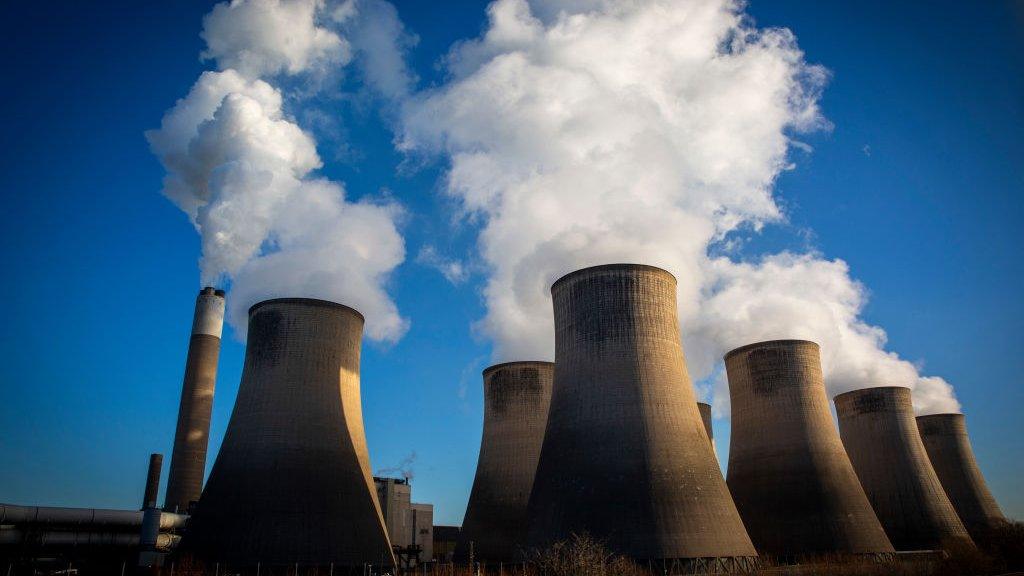Campaigners call for ocean rewilding to fight climate crisis
- Published
- comments
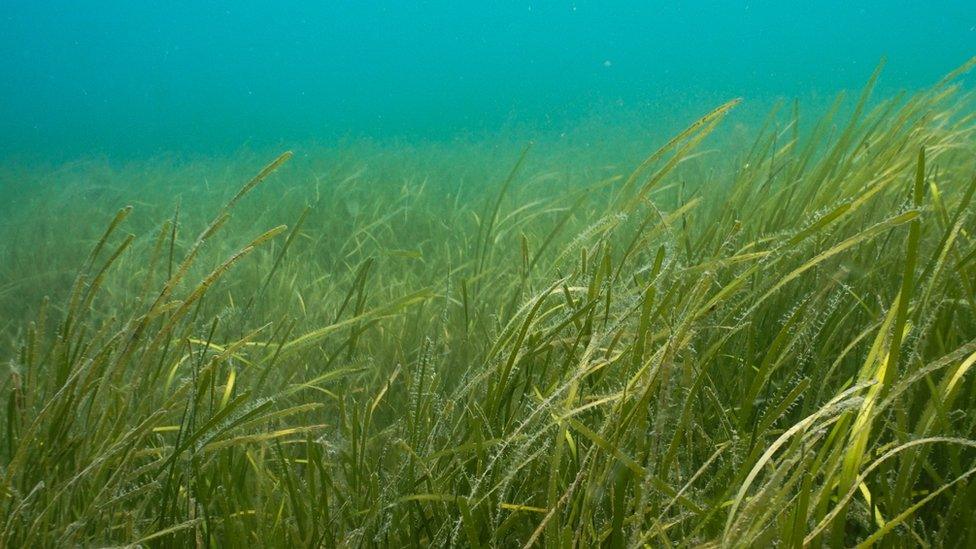
Seagrass captures and stores a lot of carbon dioxide, which is a harmful greenhouse gas
The Marine Conservation Society (MCS) and Rewilding Britain are calling on the government to focus on rewilding our oceans so the country can meet its goal of net zero carbon emissions by 2050.
Rewilding is a conservation method aimed at restoring and recreating habitats so that nature will be able to revive itself.
The idea is rewilding will help slow down the effects that climate change has had on Britain's wildlife.
Until now, the focus has been on restoring habitats on land, but campaigners want ocean rewilding to take place with the same level of urgency as reforestation.
Why ocean rewilding?
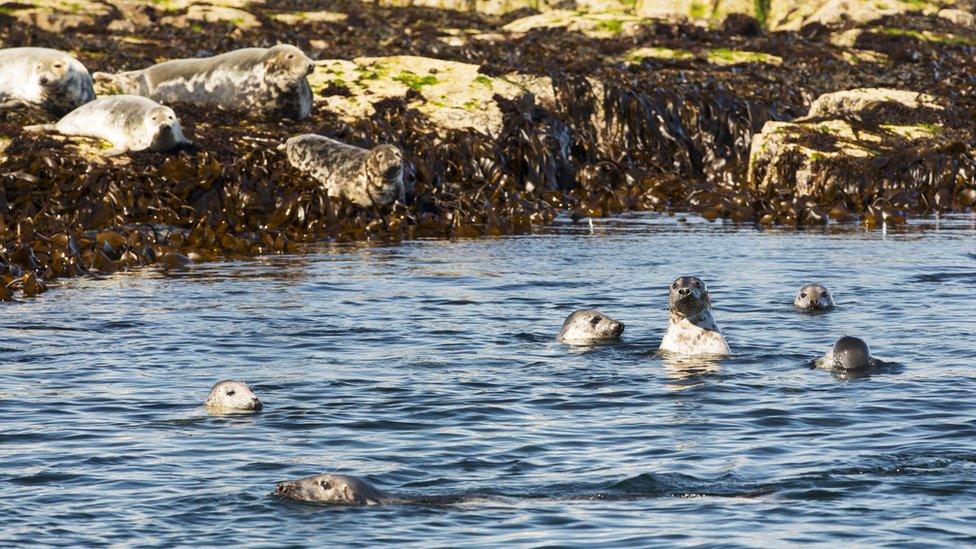
It's thought that ocean rewilding will help tackle climate change and also protect wildlife - like these seals who live on the Farne Islands on the Northumberland coast
In a new report, the Marine Conservation Society (MCS) and Rewilding Britain highlight that Britain's coastal waters cover 500,000 km2 and store an estimated 205 million tonnes of carbon.
This is 50 million tonnes more than the carbon stored within all of the UK's forests.
The two organisations want the government to develop an "ocean charter", which would include nature recovery plans, climate change reduction and adaptation policies such as:
Marine habitat recovery targets
Sustainable and low-carbon fisheries and aquaculture, such as the development of shellfish reefs
To halve fisheries-related carbon emissions by 2030 that includes emissions from fish processing and feed production
30% of UK waters to become Highly Protected Marine Areas by 2030, with strict rules on the most damaging fishing activities such as bottom trawling or dredging
Carbon contained in marine and coastal ecosystems must be considered in the same way as our woodlands and peatbog - critical to the UK's carbon strategy
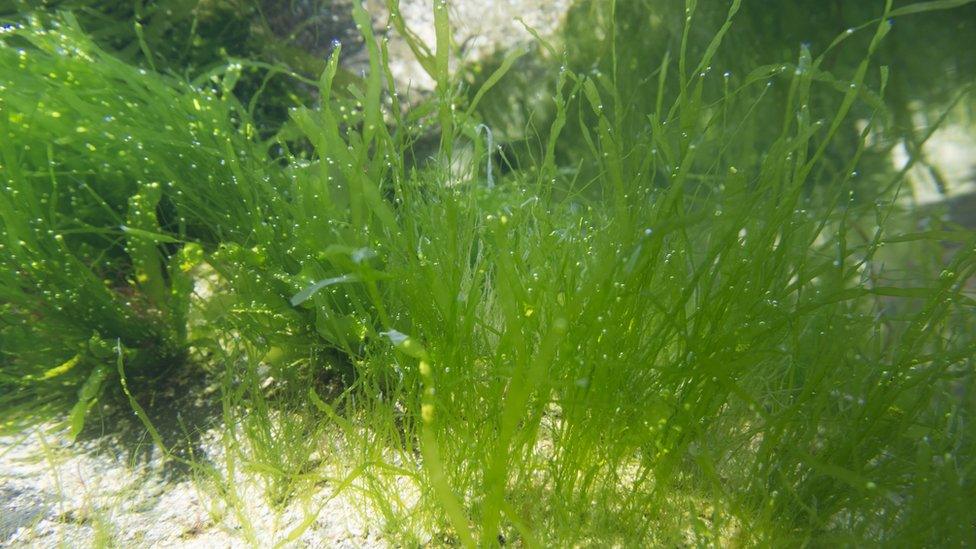
Restoring seagrass would help the UK meet its carbon cutting goals, according to the report
The research found that restoring seagrass, saltmarsh, oyster reefs and kelp forests would give Britain a massive leap forward in meeting its carbon cutting goals.
The UK's saltmarsh and seagrass habitat is thought to store 43,000 tonnes of carbon annually, the report said, a rate of between two and four times that of tropical forests.
The research also found that the UK's existing stock of saltmarshes and seagrass beds have the carbon storage potential of between 1,000 and 2,000 km2 of tropical forests.
Saltmarsh and seagrass beds across the world can store up to 450 million tonnes of CO2 a year - almost half the emissions of the entire global transport industry
Currently the UK has about 427 km2 of saltmarshes, but is losing it at an estimated 100 hectares a year - or 0.2% of the total. This is projected to increase to 8% by 2060.
The Government has committed to planting 11 million trees by 2022, but now the MSC wants to see similar targets for the ocean and wetlands.
By 2019, 21.8 million hectares of UK waters had some degree of environmental protection, according to the Office for National Statistics.
But the two organisations say there is little or no enforcement banning the most damaging activities.
What impact does human activity have on the ocean?
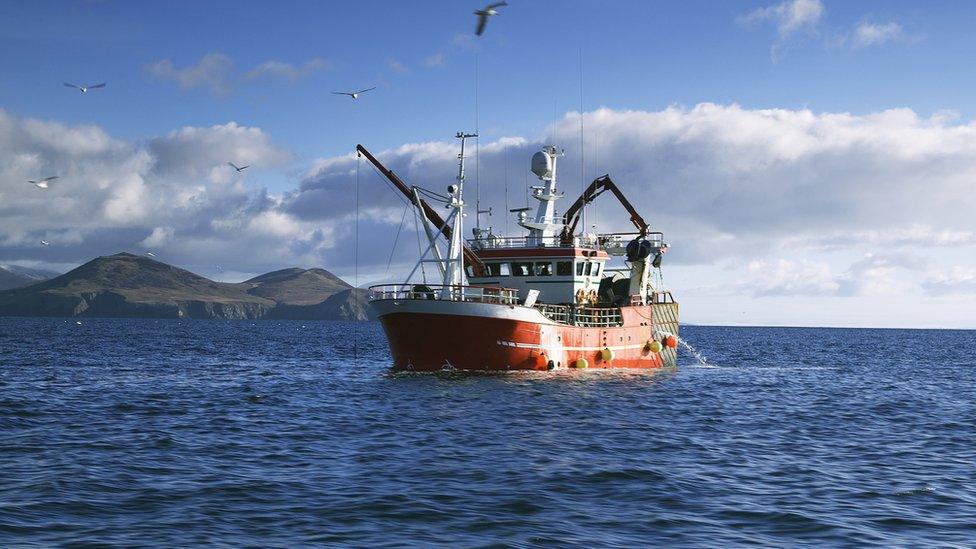
The MCS and Rewilbing Britain want the government to invest in low-carbon fisheries and put strict rules on damaging fishing activites
Fishing methods, along with mining and oil and gas extraction, disturb the seabed, releasing stored carbon into the water column and reducing the ocean's capacity to store CO2.
It also rips out plant life, which is key to storing carbon.
Currently, bottom trawling and dredging are only banned in 2% of UK seas, the report found.
The team also discovered that if no action is taken, the UK's sea shelf sediments could lose 13 million tonnes of stored carbon over the next decade.
Rebecca Wrigley, chief executive of Rewilding Britain, said: "Allowing a rich rainbow of underwater habitats and their sea life to recover offers huge opportunities for tackling the nature and climate crises, and for benefiting people's livelihoods."
How would ocean rewilding affect global greenhouse gas emissions?
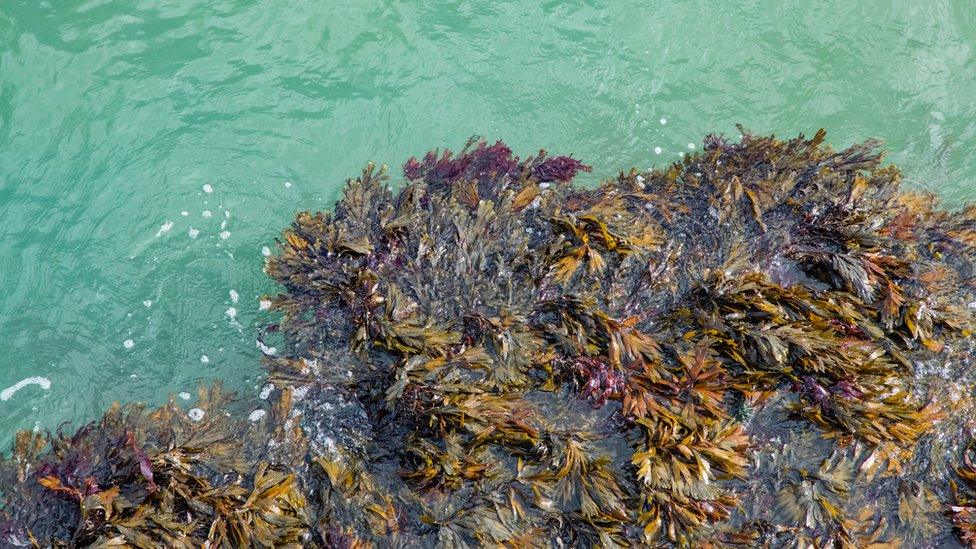
Campaigners want more to be done to protect the UK's saltmarsh and seagrass habitat
The report said that total global greenhouse gas emissions were 55.3 billion tonnes in 2018 and are on course to reach 60 billion tonnes by 2030.
In 2015, world leaders signed the Paris Climate Agreement, which was a huge international deal to do something about climate change. The main goal is to keep the planet's temperature rise under 1.5C above preindustrial levels.
In order to do this, emissions need to fall to 25 billion tonnes annually in the next decade.
It is thought rewilding key marine ecosystems around the world could lock up 1.83 billion tonnes of carbon each year - 5% of the savings needed globally.
A spokesperson for the Department for Environment, Food and Rural Affairs (Defra) said: "The UK is a global leader in the fight to protect our seas, with our 'Blue Belt' of Marine Protected Areas extending across 38% of UK waters. We recognise the important role blue carbon habitats play in supporting adaptation and resilience to climate change.
"This is why we are leading calls for a new global target to protect at least 30% of the ocean by 2030 and examining stronger protections for our 'Blue Belt' of Marine Protected Areas."
- Published29 October 2020

- Published22 April 2021
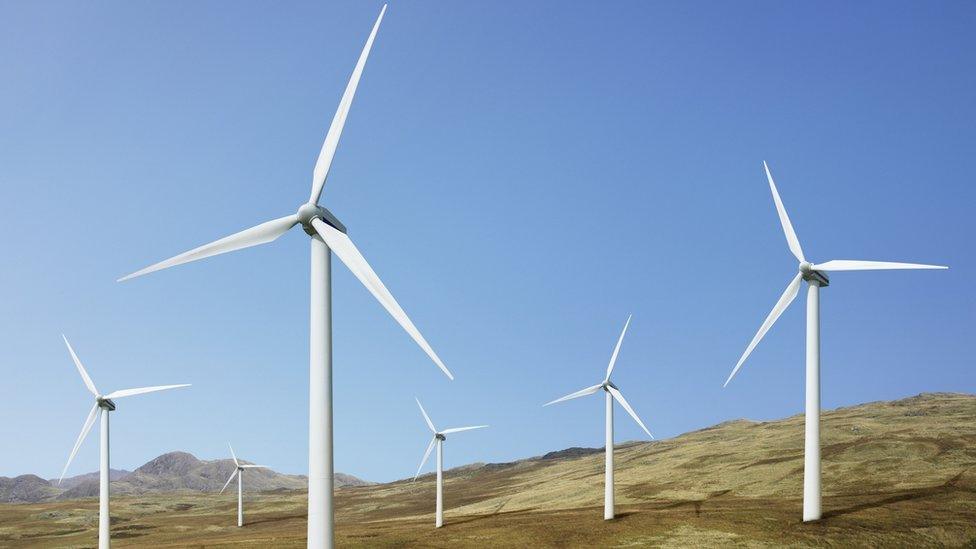
- Published4 December 2020
